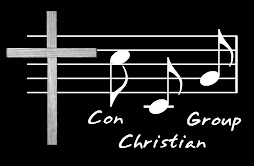This oratorio by Handel, is based on the Old Testament bible story from Judges 11-12 and tells the tragic story of Jeptha staying faithful to a vow he made to the LORD and sacrificing his own daughter. The libretto is written by the Rev. Thomas Morell, and based on the book Jephthas sive votum - "Jeptha or the Vow" (1554) by the Scottish historian and humanist, George Buchanan. It siezes on the human catastrophe of the situation, and uses colorful and emotive language to tell of the anguish that the whole of Jeptha's family would have gone through to lose the young girl, Iphis (who is not given a name in the Bible).
Much of the piece is made up of the relationship between Iphis and her boyfriend Hamor (who does not actually exist in the original), and many of the arias portray them singing their love for one another:
Ah Cynthia, breaking from th'involving clouds
On the benighted traveller. The sight
Of thee, my love, drives darkness Hamor Act I no.9 Aria
These labours past, how happy we!
How glorious will they prove,
When gath'ring fruit from conquest's tree,
We deck the feast of love! Iphis and Hamor, Act I no.14 Duet
Jeptha himself is depicted in the oratorio as a noble, virtuous man who valiantly accepts the invitation of the Israelites to lead them into battle against the Amonites (Jeptha actually is an Israelite who has been disowned and cast out, but is called upon in a time of despair). The tragedy of the story comes when Jeptha makes a vow to the LORD that if God would give him the power to drive out Ammon,
What, or whoe'er shall first salute mine eyes,
Shall be forever Thine, or fall a sacrifice.
As Jeptha returns from battle the first person who runs out to meet him is his daughter Iphis. The heart of every parent churns at this point of the story, and they listen in disbelief as Jeptha follows through on his vow and commits the ultimate sacrifice, his only child. This is even more significant than the obvious emotional loss when you consider the the importance that Israelites placed on the carrying on of the family name and inheritance. Emotion pours forth for the rest of the oratorio as Jeptha remains faithful to his promise to God, and Iphis humbly submits to her father.
This is an amazing story of faithfulness and catastrophe, and I think that Handel's piece captures the emotional side of the Judges 11 passage very well, but with such a strong emphasis on the love between Jeptha's daughter and her fictional boyfriend, it misses the overall point that the scripture is making. The bible presents Jeptha as a deeply flawed character, who God uses mightily to achieve his purposes of reminding God's people of His faithfulness to His promises.
Jeptha is the son of a prostitute, who has been driven out by his half brothers and told that he had no inheritance amongst the people and has gone to live amongst 'worthless fellows' (Judges 11:1-3). The fact that Jeptha keeps his vow (a possible reminder of Abraham's willingness to sacrifice his only son Isaac to the LORD in Genesis 22?), is put in contrast to the way that the nation of Israel, God's people, have turned away from Him. Only in the previous chapter, Judges 10, the people of Israel did evil in the sight of the LORD and served the Baals and the Ashtaroth, the gods of Syria... and they forsook the LORD and did not serve him.
Israel's rejection of their God is something that is easy for us to read in hindsight and look down upon, but the clear message of the bible is that we all have rejected God and desperately need His forgiveness. Isaiah 53:6 tells us that all we like sheep have gone astray; we have turned every one to his own way, and in the New Testament, Romans 3:11-12 goes on to say that no one seeks for God. All have turned aside. Just as Jeptha sacrificed his only child, so God sacrificed his only son, Jesus, in order that we might be able to have a relationship with Him. Romans 3:23-24 goes on to say that is only by Jesus' sacrifice (propitiation), and that the only way to have a relationship with God is to put your faith in Jesus: for all have sinned and fall short of the glory of God, and are justified by his grace as a gift, through the redemption that is in Christ Jesus, whom God put forward as a propitiation by his blood, to be received by faith.
The Sydney Philharmonia Choirs are performing Jeptha Friday 24 July 7pm and Sunday 26th July, 2pm in the City Recital Hall Angel Place.



